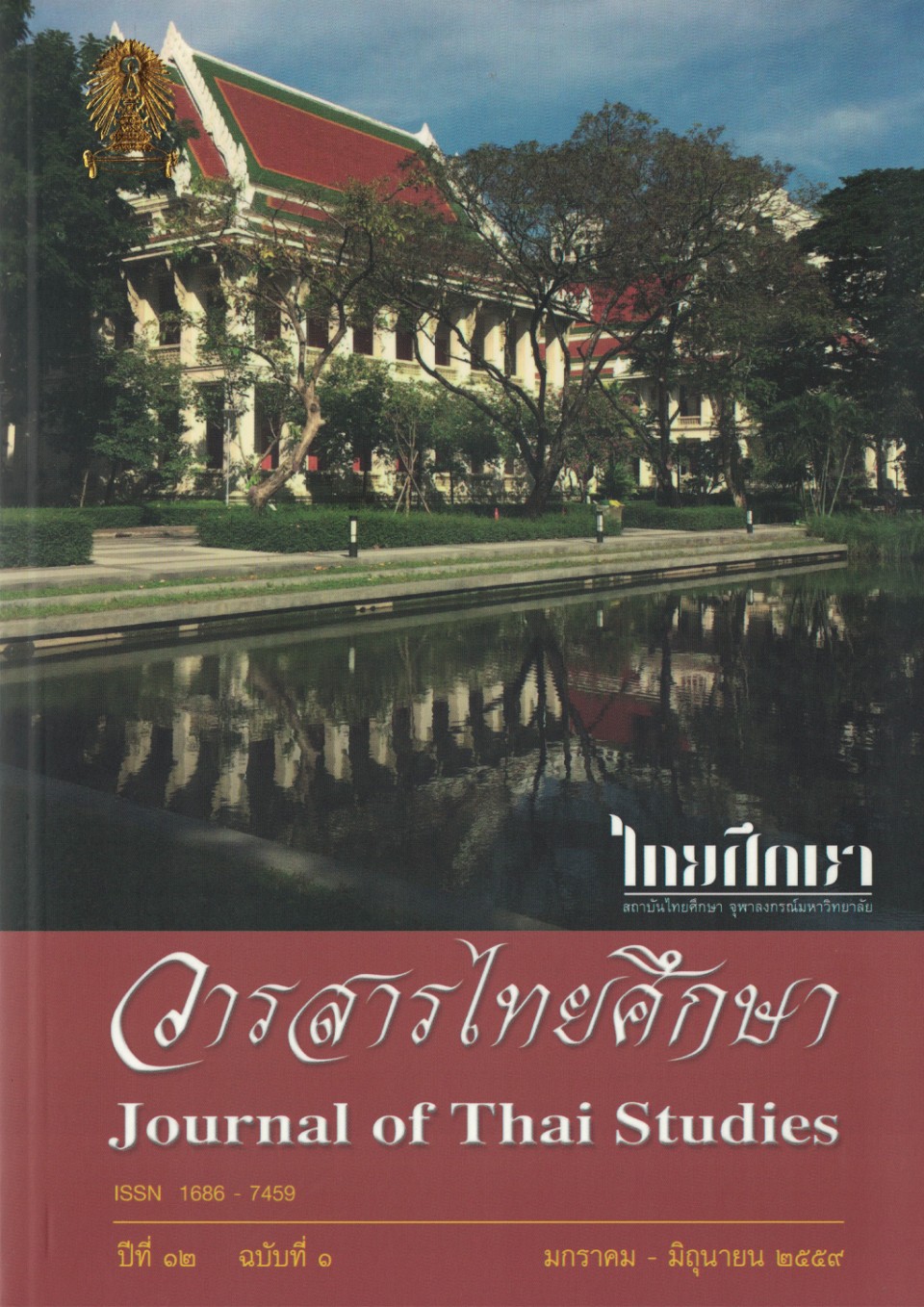The Views of Thailand’s Leading Theravada Buddhist Monks on Human Rights
Main Article Content
Abstract
Regarding the views of Thailand’s leading Theravada Buddhist monks on human rights, Panutat Yodkaew analyses the perspectives from which Buddhadasa and Phra Promgunabhorn looked at the modern concept of human rights. Navigating through their famous pieces of writing, he portrays how Buddhadasa and Phra Promgunabhorn argued for elimination of avijja or ignorance as the root cause of so many problems regarding human rights violations, as well as explains why the modern concept of human rights hardly convinced Thailand’s leading Buddhist monks of its logical foundation and its practicality. However, both Buddhadasa and Phra Promgunabhorn did not negate the raison d’etre of the human rights regime operating in various regions. Rather, they warned against the danger of ignorance, partiality, hatred and prejudice inherent in our human nature as factors detrimental to the world’s peace and justice. Interestingly, Buddhadasa and Phra Promgunabhorn share a common view that overall modern education does not recognize the importance of ethics. As a result, modern men are still driven by greed, self-centeredness and self-interest.
Downloads
Article Details

This work is licensed under a Creative Commons Attribution-NonCommercial-NoDerivatives 4.0 International License.
Journal of Thai studies is licensed under a Creative Commons Attribution-Noncommercial-NoDerivatives4.0 Intenational (CC BY-NC-ND 4.0) licence, unless otherwise stated. Plese read our Policies page for more information on Open Access, copyright and permissions.
References
ภาษาไทย
พระพุทธทาสภิกขุ. อตัมมยตาปริทัศน์. กรุงเทพฯ : สำนักพิมพ์สุขภาพใจ, ๒๕๕๖.
พระพุทธทาสภิกขุ. อตัมมยตาประยุกต์. กรุงเทพฯ : สำนักพิมพ์สุขภาพใจ, ๒๕๕๖.
พระพุทธทาสภิกขุ. คนถึงธรรม ธรรมถึงคน.กรุงเทพฯ: สำนักพิมพ์สุขภาพใจ, ๒๕๕๗.
พระพุทธทาสภิกขุ. แก่นพุทธศาสน์. กรุงเทพฯ : สถาบันบันลือธรรม, ๒๕๕๖.
พระพรหมคุณาภรณ์ (ป.อ.ปยุตโต) พจนานุกรมพุทธศาสน์. กรุงเทพฯ : ธรรมสภา, ๒๕๕๓.
พระพรหมคุณาภรณ์ (ป.อ.ปยุตโต) พุทธธรรม. กรุงเทพฯ : โรงพิมพ์เพิ่มทรัพย์การพิมพ์, ๒๕๕๓.
พระธรรมปิฎก (ป.อ.ปยุตโต.) สิทธิมนุษยชน สร้างสันติสุขหรือสลายสังคม.กรมองค์การระหว่างประเทศ, ๒๕๔๖.
ภาษาอังกฤษ
Buddhadas Bikhu. Handbook for Mankind. Amarin Printing and Publishing Plc, 2012.
Buddhadas Bikhu. Heartwood of the Bodhi Tree. Silkworm Books, 2012.
Buddhasdas Bikhu. Mindfulness with Breathing. Silkworm Books, 2012.
Charles Van Doren. A History of Knowledge. Ballentines Books, 1992.
Damien V. Keown, Charles S. Prebish. Buddhism and Human Rights. Curzon, 1998.
Gerald Benedict. Buddhist Wisdom. Watkins Publishing, 2009.
Jack Donnelly. Universal Human Rights. Cornell University Press, 2013.
Jo Durden. The Essence of Buddhism. Arcturus, 2006.
John R. Hinnells. Dictionary of Religions. The Penguin, 1984.
John Witte Jr.and M.Christian Green. Religion and Human Rights. Oxford University Press, 2012.
Masao Abe. Zen and Western Thought, University of Hawaii Press, 1985.
Nicholas F.Gier. Buddhism and the Freedom of the Will. Cambridge MIT Press, 2004.
Patrick Hayden. The Philosophy of Human Rights. Paragon House, 2001.
Paul Williams. Mahayana Buddhism: The Doctrinal Foundations. Routledge, 2009.
Richard Francis Gombrich. Theravada Buddhism. Routledge, 2006.
Richard H. Popkin and Avrum Stroll. Philosophy. Athenaeum Press, 1993.
Scott Davidson. Human Rights. Open University Press, 1993.
Sue Hamilton. Early Buddhism : A New Approach. Richmond: Curzon Press, 2000.
Traleg Kyabgon. The Eassence of Buddhism. Shambala, 2010.
V. Vajiramedhi. The Miracle of Suffering, Pran Publishing Co., 2012.
Valleries J. Roebuck. The Dhammapada. Penguin Books, 2010.
Walpola Sri Rahula. What the Buddha Taught. Oneworld Press, 2010.
William H. Brackney. Human Rights and the World’s Major Religions. Praeger. Santa Barbara, 2015.
William Montgomery Mc.Govern. A Manual of Buddhist Philosophy. Nagpublishers, 1979.
William Talbott, Which Right Should Be Universal, Oxford University Press, 2005.


